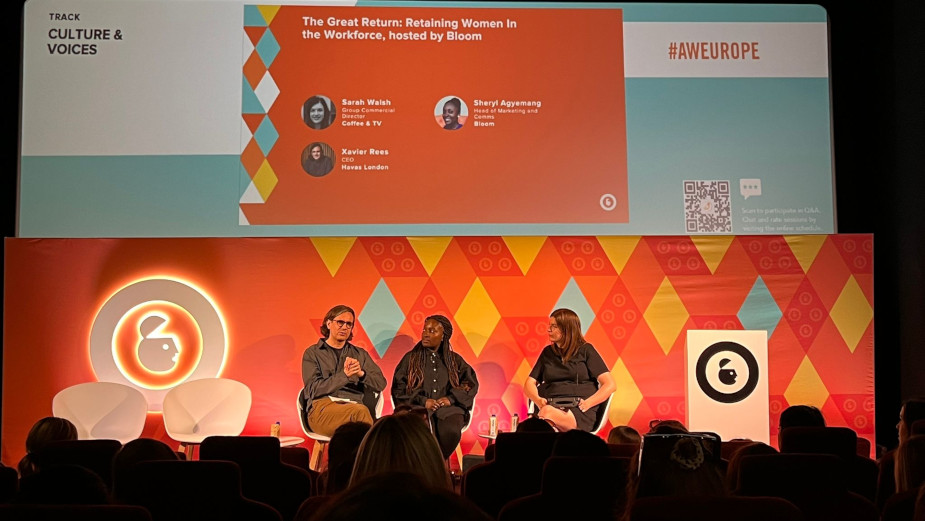
Why One Out of Six Women Want to Leave Adland and How Can We Convince Them to Stay

The trends of women leaving the workforce, not only in adland, but all across the economy have only been exacerbated by the effects of the pandemic and the growing domestic pressure on women. Having the gender pay gap as an umbrella issue that is enough to put off a lot of women from pursuing certain positions is just the beginning of it, but then we get to issues such as maternity leave (and the subsequent need for time off during school years beyond having a newborn baby), menopause, period leave, and ageism.
Although Sarah Walsh spoke to Sheryl Agyemang and Xavier Rees about how these issues are actually not exclusively female, the audience at Advertising Week Europe on Tuesday was predominantly female. “I see some blokes turned up, but I think there’s room for improvement in terms of showing that this is still primarily viewed as a conversation for women, and that is a real shame,” noted Xavier. “This is an issue for all of us. It’s an issue for anyone running a business and it’s an issue across our society, if we want to make the place we live and work a better one.”
And Bloom is recognising exactly that side of things. To support their mission to ensure that all women have equal opportunity in the communications industry, they have developed initiatives to support individuals, allies and organisations to drive change. In partnership with Major Players, they developed The Great Return, which is a guide for parents, co-workers and employers on how to facilitate a smooth maternity leave process. But convincing women that staying in adland goes beyond proper maternity leave.
Although according to Xavier, Havas is known for a ‘reasonably competitive' maternity leave policy of six paid weeks, he shared that they are looking to extend this to cover all types of parenthood. “We want to change that so that men and women and parents of all types will be in the same league,” he said. The operational challenges, however, are not to be progressive enough to enable those conversations within the agency, but also to get employees of all genders feeling comfortable enough, both financially and emotionally, to take that leap and take advantage of those policies.
The silver lining, from 2020 onwards, for Sheryl is in the time for reflection that employers had, to be able to conclude that the company ‘won’t crumble’ if people work from home or leave early sometimes. She touched on miscarriage policies, as well as policies that consider leave during children’s school year, and policies extending to parents that do not fall under the framework of a cisgendered heterosexual couple.
“Another issue that affects us in the industry, beyond maternity leave, is the menopause, that everybody has in mind as a little secret,” Sheryl noted. “We all need to rally on together and face the fact that for both menopause and the menstrual cycle, we’re all going through it and not pretend that everything’s okay.” To her, to tackle this the industry needs to not only address its existence but also take a step further to find out how businesses and managers within them are equipped with the right information to handle things that they aren’t privy to or are not part of their own lived experience.
Sheryl also commented on the massive issue of ageism within advertising: “When I started off in the industry in my early 20sI remember wondering ‘Where does everybody go after 30?’” For Xavier, those issues are tightly related to representation on every level. “There’s quite a bit of work to do. We all know that this industry has been shaped by a bunch of white blokes, so I think the important thing as we move away from that, is understanding that we don’t have it all. Understanding that it’s alright, and as long as you want to ask those questions you can jump the barriers. Just be honest about the fact that we’re not quite there and embrace businesses that are not quite there yet, to help each other and move forward.”













